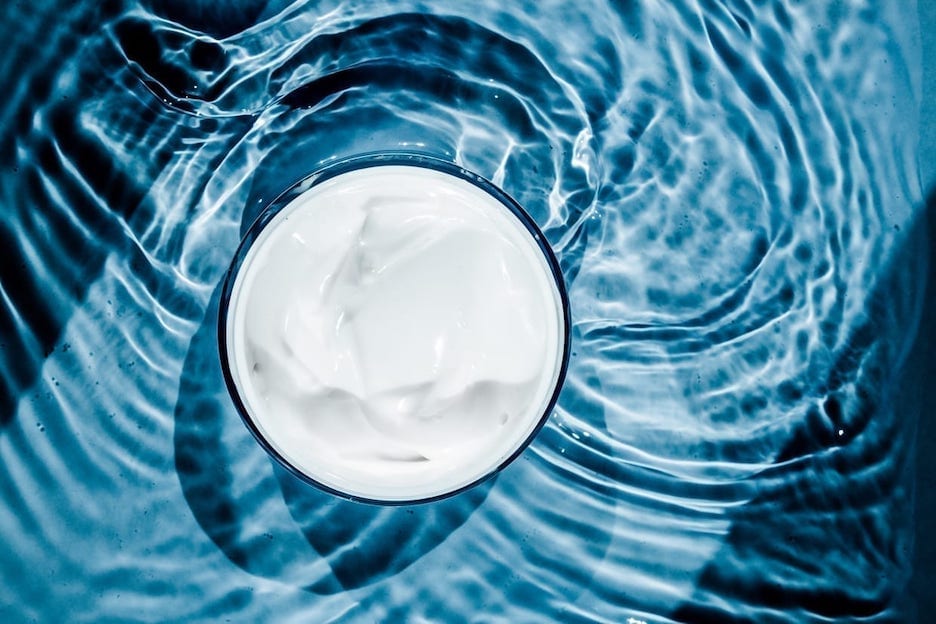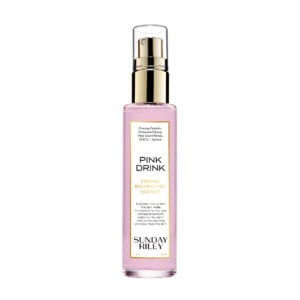No matter how well-stocked your medicine cabinet, one thing is inevitable: As you age your skin will lose some of its natural moisture, becoming drier and losing some of that youthful bounce. It is a downer, sure, but it is also a completely natural process. If it bothers you, there are luckily ways you can slow Father Time’s roll.
The key? Knowing the right skincare ingredients that can help your skin cells remain in top form and lock in that youth-giving moisture. Enter: ceramides.
What are ceramides?
“Ceramides are an essential ingredient to help maintain the moisture of your skin,” says Lily Talakoub, M.D., a board-certified dermatologist in Virginia. “Using a moisturizer with ceramides prevents the water from evaporating from the skin’s surface, particularly in dry and cold climates.”
Ceramides perform this moisture-locking magic by keeping your skin barrier strong. Think of your skin barrier like a brick wall keeping the good stuff in and the bad stuff out: “It is a highly impermeable barrier to prevent water loss from the skin and protect against harmful microorganisms and irritants entering the body,” says Shari Marchbein, M.D., a board-certified dermatologist in New York. Skin cells (called corneocytes) are the “bricks” in the wall and ceramides — a type of fat molecule called lipids that occur naturally in your skin — act as the mortar. “Ceramides are able to boost barrier function by working together with cholesterol and fatty acids to create a healthy, intact skin barrier and retain moisture in the skin,” Marchbein says.
Ceramides are the naturally-occurring bonding agents that help keep your skin healthy and hydrated.
In other words, ceramides are the naturally-occurring bonding agents that help keep your skin healthy and hydrated.
Why are ceramides important?
Ceramides are ever so important for skin hydration, which you should care about for two main reasons:
First off, hydrated skin is healthy skin. “Poorly hydrated skin is unable to maintain an appropriately intact skin barrier, leaving the skin more vulnerable to damage from external environmental sources like pollution or dry air,” says Marchbein. This is where ceramides come in. They help to keep your skin barrier strong — without them, moisture leaks out and bacteria and irritants can get in, Marchbein explains, which can cause dry, red, flaky, itchy skin.
Keeping skin hydrated (by keeping those ceramide bonds intact), also helps to make your skin look better. “Hydrated skin looks plumper, healthier and more vibrant,” Marchbein says. “If the outermost layer of the epidermis doesn’t contain enough water, the skin will lose elasticity and appear dry, rough and flaky.” In other words, as the ceramides in your skin diminish, they leave room for signs of aging like wrinkles and sagginess.
Do ceramides decrease as you age?
Unfortunately, the fountain of youth-like effect natural ceramides provides for your skin does not last forever. “Ceramides are lost from age and UV damage. They are broken down leading to dry, thin and aged skin,” says Talakoub. Other factors like pollution and an over stripping of the skin (which can happen when you wash your face too frequently or with harsh ingredients that leave your skin feeling dry and tight) can also deplete the natural levels of ceramides in your skin, she adds.
While a good sun protection routine (wear at least SPF 30 Every. Single. Day.) can help protect your precious ceramides, there is, unfortunately, nothing you can do to coax your body into producing more, says Talakoub.
How does diet affect natural ceramides?
What you eat is also important for maintaining your skin’s natural ceramides. “Ceramides don’t work well alone,” explains Talakoub. “It’s the ratio of ceramides to cholesterol and fatty acids that is essential in the skin.” Translation: “A diet high in essential fatty acids will help maintain the levels of ceramides while a fat-free diet can cause the skin to become dry, loose and dehydrated,” Talakoub says. In other words, a diet rich in healthy fats — think: avocado, salmon, nuts and olive oil — can actually help your skin stay healthier by protecting the ceramides essential to the skin barrier.
So, should you be using ceramides in your skincare?
Absolutely, according to the experts. “Utilizing ceramides is a great idea at any stage of life,” says Marchbein. “My own children have used a ceramide containing moisturizer since they were babies.”
No matter what your skin type — sensitive, oily or dry — skincare products containing ceramides can benefit your skin, but they are especially important if you have dry skin in need of a glow up. “In dry, sensitive and dehydrated skin, ceramides are a necessary ingredient to replenish,” Marchbein says. (If you have a skin condition that causes extreme dryness like eczema or psoriasis, they are even more important, she adds, since treatment is all about repairing the skin barrier.)
How should you work ceramides into your skincare routine?
“Look for moisturizers with ceramides to help replace those stripped away in dry skin,” recommends Marchbein. Spotting these moisturizers is simple: If a formula contains ceramides for skin, they should be listed on the ingredient list.
But to really pack a powerful punch and deliver serious moisture, look for formulas that contain ceramides in addition to other moisture powerhouses like glycerin, hyaluronic acid or petroleum — these ingredients will help repair the skin barrier and replenish lost moisture even faster, Marchbein says. Her pro tip: Use a moisturizer or essence packed with ceramides after using retinoids or acne-fighting products that often contain ingredients that can irritate and dry out your skin.
The bottom line: For anything causing dryness, ceramides are the moisture-rich antidote.
Editor’s note: This article has been updated since its original publication in September 2019.









